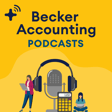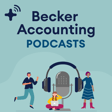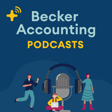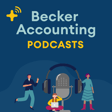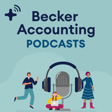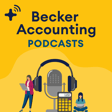
Cool Careers in Accounting Ep. 8 - The Tech CPA Who Needed Just One Yes with Mike Manalac
Explore Mike Manalac's journey to uproot his family, move across the country, and break into the tech world. He shares how, despite many rejections, perseverance and a renewed perspective finally got him the opportunity to join Google. He shares how he used his CPA license and accounting background to grow his dream career in spite of the pitfalls, how he successfully navigated a sabbatical to travel the world with family, and advice for anyone who strives to take their career in a new direction.
Earn CPE by listening to this podcast through a Becker Prime CPE subscription.
Listen to this episode through your Becker LMS platform to complete practice questions, pass the final exam, and earn CPE credit.
Already a Becker Prime CPE customer? Login here.
Have access to Becker CPE through your employer? Earn CPE credit for this podcast however you consume Becker CPE, either through your company’s LMS or via the Becker platform. Not sure where to log in? Check with your CPE admin.
Learn more about CPE Podcasts from Becker: https://www.becker.com/cpe/becker-podcasts
